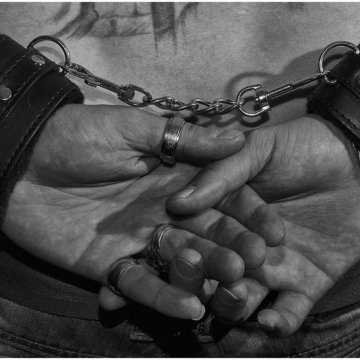- About
- Topics
- Picks
- Audio
- Story
- In-Depth
- Opinion
- News
- Donate
- Signup for our newsletterOur Editors' Best Picks.Send
Read, Debate: Engage.
| topic: | Rule of Law |
|---|---|
| located: | Russia |
| editor: | Igor Serebryany |
Thousands of academicians, students, teachers, performers, doctors, and even shopkeepers voiced their concerns this week over the destiny of seven activists sentenced to the lengthy prison terms in the central Russia's city of Penza.
As of Wednesday, 3,200 people have signed the petition calling to cancel or mitigate the unusually harsh verdict made by a martial court on February 10.
"Law enforcement agencies have rendered themselves a threat to Russian citizens", the petition reads.
Among those who signed the petition, there are at least two high-ranking state officials: head of the government of the Saha republic Vladimir Solodov and leader of the Just Russia parliamentary party Sergei Mironov.
The martial court sentenced seven accused, aged 23 to 31, to six to 18 years behind bars.
The court upheld the investigators who claimed the group named "Set" ("Network") has planned to fire-bomb the offices of the pro-Kremlin United Russia party, military commissariats and other government establishments. All seven deny the allegations saying they were forced by the FSB to make self-accusations under tortures.
The public outcry has been caused by uncharacteristically harsh sentences for, in essence, declarations of intention, head of the Moscow office of the International Human Rights Society Vladimir Novitsky says.
"People are shocked not because they care about the Set members personally. The citizens have been concerned with the non-legal nature of the court hearing which has violated the Criminal Code," he notes.
Russian Criminal Code does not envisage responsibility for intention to commit a crime unless a person undertakes any actual acts to perpetuate it.
Novitsky stresses that the Set members have not made any physical actions that could be qualified as preparation for the terror attacks. "All their crime is that they fantasized about a 'brave new world' in their electronic correspondence intercepted by FSB", he says.
Still, the court sentenced the group to the terms normally given to those who have actually committed terror attacks. "To give 18 years just for small talks about establishing fair order in the country is way too much", the lawyer believes.
He points at article 5 of the Criminal Code that criminalizes only the actions that have brought about socially harmful consequences, not deliberations about such actions.
"Objective imputation is legally unacceptable. No one can be charged for simply belonging to any group unless he or she has actually made anything illegal", Novitsky stresses.
This is not about the personalities of the Penza "revolutionaries", this is a matter of principle, the veteran of a human rights movement in the Soviet Union and Russia Lev Ponomarev says. He has also signed the petition. The movement has been declared a foreign agent by the Russian Ministry of Justice the last year.
"I am not acquainted personally with the accused, like the majority of those who signed the petition. We don't defend those guys particularly. We defend the right of the people for a fair trial", he says.
According to Ponomarev, the Set case shows that Russian investigative and court systems have rapidly been sliding back to the Soviet-style "justice", both in terms of the investigations methods and the prison terms given.
"The human rights activists protest against coercing the defendants to give evidence under tortures, be they physical or psychological. And I know it first-hand that the tortures were used during investigations in Penza. The most of the defendants told the court they were tortured by investigators but their complains fell on deaf ears", he says.
Meanwhile, torture exercised by an official to beat out an admission of guilt is a grave crime itself, according to the Russian Criminal Code's article 286.
